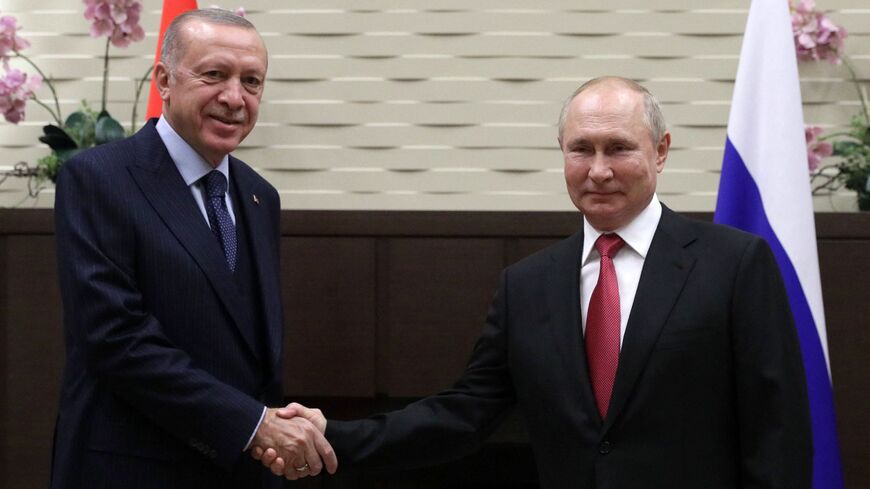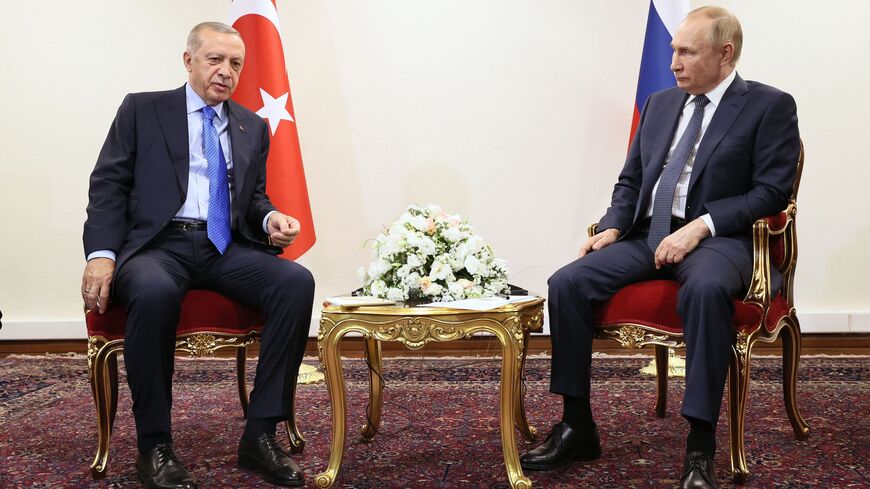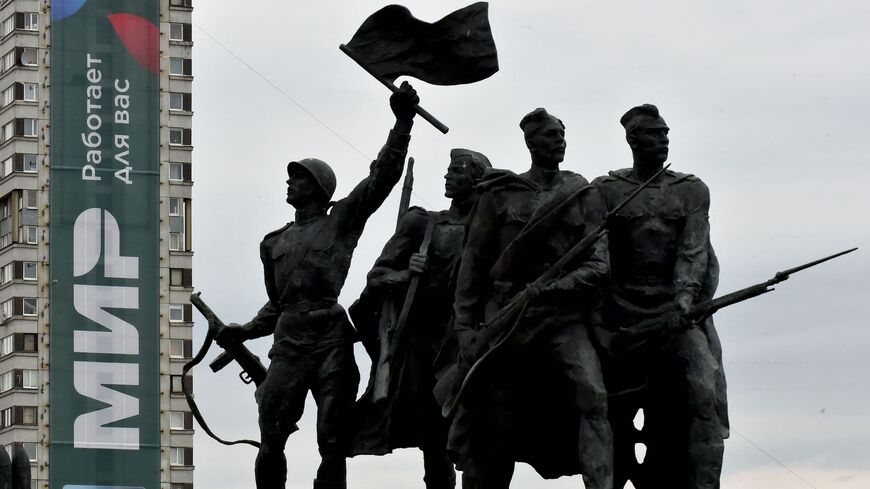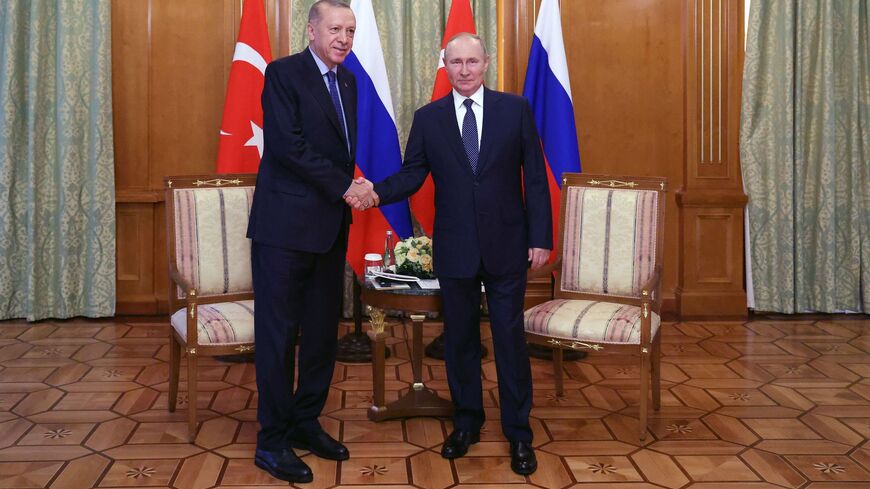Russia offers Erdogan economic lifeline
Gas payments in rubles will help Turkey reduce its foreign-currency demand.
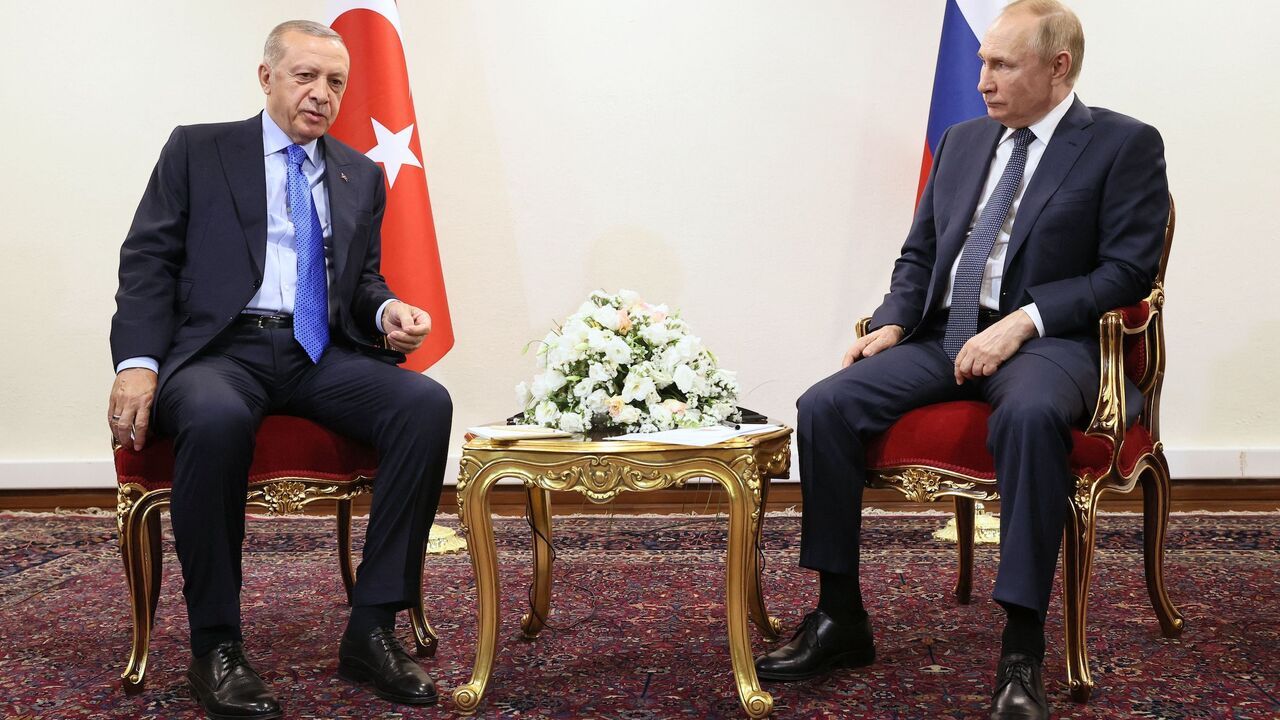
The economic outcomes of the recent Turkish-Russian summit and a string of financial moves by the Russian builder of a nuclear power plant in Turkey have come as fresh signs that Turkey is becoming a safe harbor for sanctions-hit Russian capital. For some observers, the moves amount also to a financial lifeline for Turkish President Recep Tayyip Erdogan as he grapples with economic turmoil ahead of crucial elections next year.
Money transfers by Rosatom, the state-owned Russian company building Turkey’s first nuclear power plant in Akkuyu; a deal allowing Turkey to pay in rubles for some of its Russian gas imports; and moves to expand the use of the Russian Mir payment system in Turkey are all seen as the pieces of an integrated effort between Ankara and Moscow.



